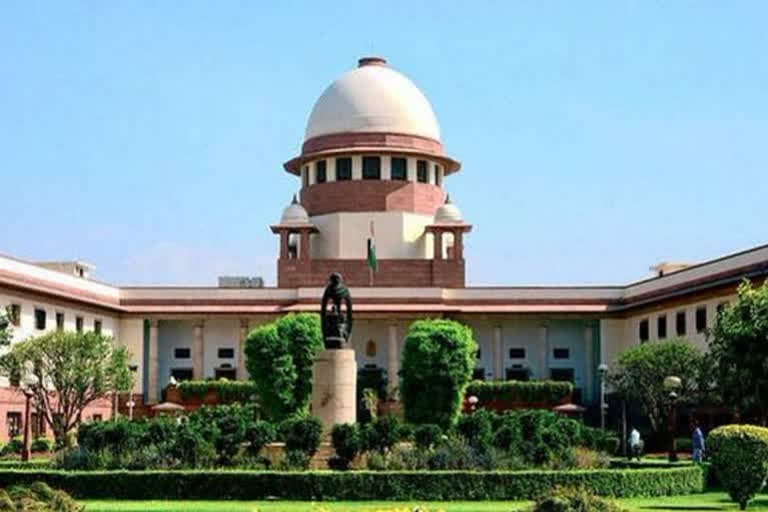New Delhi: The central government has told the Supreme Court that its notification dated 28th May 2021, wherein it had sought applications from non-Muslim immigrants of neighbouring countries to grant them citizenship, has nothing to do with the Citizenship Amendment Act,2019, and it is merely delegation of power to the local authorities in particular cases which has been done earlier also.
The centre's reply has come in response to the Indian Union of Muslim League's plea which had challenged the Home Ministry's notification inviting applications from non-Muslim immigrants in the states of Gujrat, Rajasthan, Haryana, and Punjab. The petitioner had said that the government is trying to implement CAA,2019 even when it had told the court that rules are not framed in it and the court is aware of the matter.
"It is submitted that Section 16 of The Citizenship Act,1955, confers powers on Central government to delegate some of its citizenship-granting powers to such officers or authority as may be specified. In the year 2016, the Central government used its authority under Section 16 of the Citizenship Act and delegated its power to grant citizenship by Registration or Naturalization to District collectors of 16 districts and Home Secretaries of governments of 7 states in respect of migrants belonging to six specified minority communities of Afghanistan, Pakistan and Bangladesh, for two years. It is submitted that this was done to fast track the decision on citizenship applications of this category of foreigners. In 2018, this delegation of power was extended until further orders," said the centre.
Also Read: India, Pak, China increase number of nuclear weapons in 2020
It stated that earlier in the years of 2002, 2004, 2009, Rajasthan Chief Minister, Ashok Gehlot had requested the centre to delegate its power to District Collectors for speedy granting of citizenship to minority migrants from Pakistan who were forced to come to India due to persecution on religious grounds. Delegation of power was permitted by the centre in 2004,2005,2006, 2016 and 2018.
Centre claims that now also it had received several representations to delegate its power and therefore it had asked the district collectors of 29 districts and Home secretaries of 9 states to exercise powers of centre to grant citizenship to specified category of foreigners.
Also Read: Free food, free vaccines to cost extra Rs 1.05 lakh crore: SBI Research
"It is submitted that no relaxation whatsoever has been made in respect of the eligibility criteria between different foreign nationals which are laid down in the Citizenship Act,1955 and rules made thereunder. Hence, the question of violation of Article 14 in making the certain classification does not arise," said the centre.
"It is submitted that any foreigner of any faith can apply for citizenship of India at any time. The central government shall decide that application as per law and rules," said the centre. The matter is listed tomorrow before the Supreme court.
Also Read: Pak, India agree to share ownership of Basmati rice



